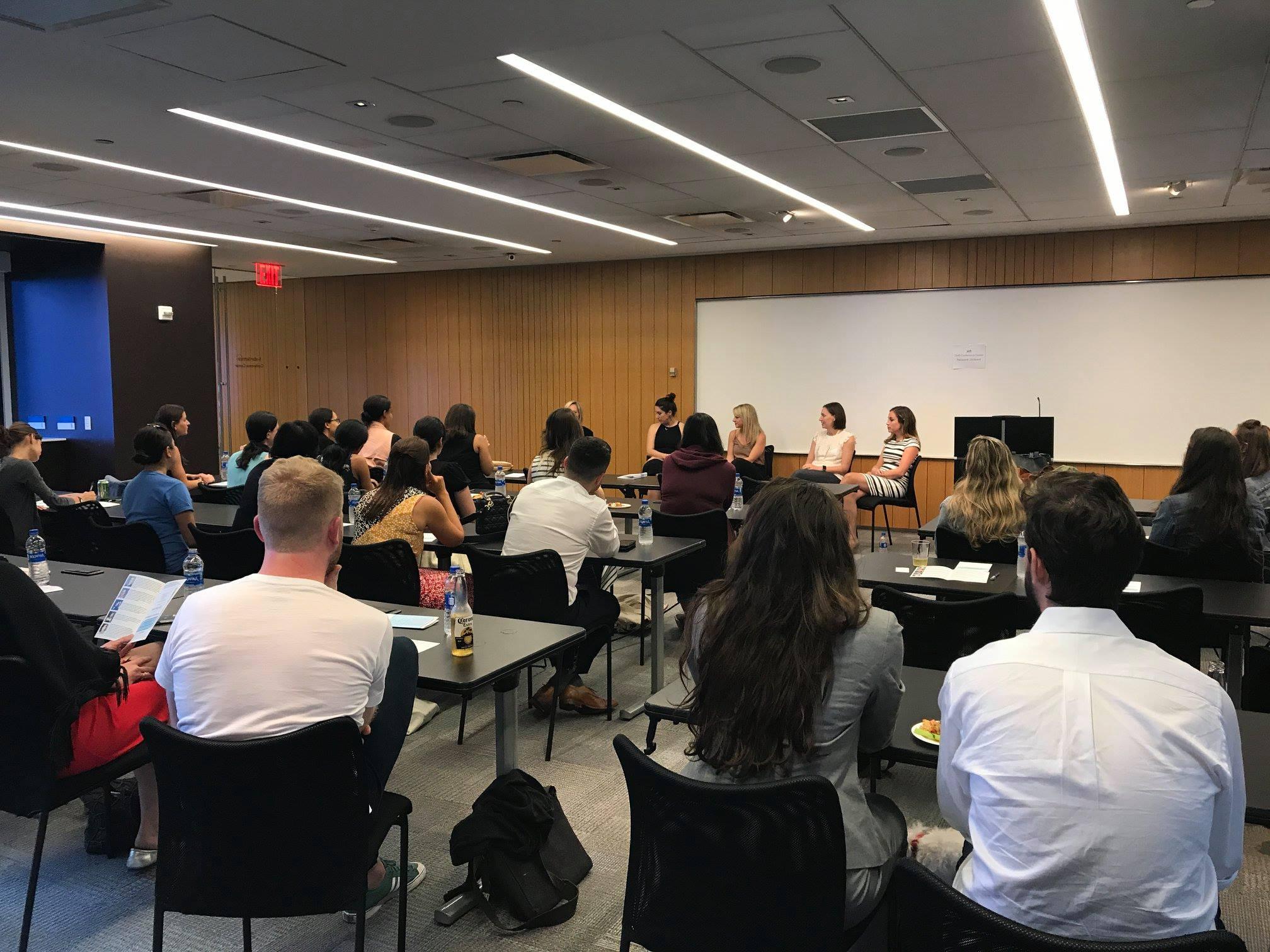
On June 27, 2018, at Foley Hoag LLC in New York City, the Basser Center for BRCA held a panel discussion on the ins and outs of dating with a BRCA mutation. Speakers included Danielle McKenna, Genetic Counselor at the Basser Center, Lindsay Hoskins, a Couples and Family therapist in Washington, D.C., and two of our Young Leadership Council members: Suzanne Zuppello, a freelance writer and BRCA mutation carrier, and Lauren Profis, a marketing professional and BRCA mutation carrier. The panel was moderated by DeAnn Smith of Foley Hoag, a U.S. patent attorney. The panel members spoke about their experiences with dating either from the perspective of medical professionals or as BRCA mutation carriers — a deeply personal topic that we feel needs more discussion.
This is the second of three articles outlining the panel discussion. The responses below reflect some of the frustrations younger individuals have with finding information about living with a BRCA mutation and we’re grateful they were willing to candidly share their experiences. Thanks to Young Leadership Council member Sarah Roth for providing detailed notes from the event.
Can we talk about your decision to freeze eggs?
Suzanne Zuppello: Ovarian cancer is very difficult to detect, and is usually detected late. So I wanted an insurance policy. I got funding through the Livestrong Foundation for fertility treatments.
Disclosing information
Lindsay Hoskins: There’s often a natural moment [in dating] that emerges for sharing information. Those conversations can begin in a natural and authentic way.
Deciding to get genetic testing while in a partnership
Lindsay Hoskins: Making decisions about testing – and what to do with the information – lives both in the relationship and in you. A BRCA mutation often feels like it lives right here and I help people realize that, thankfully, it won’t always feel like that.
Danielle McKenna: I’m a little biased, but I think genetic testing is a good idea. [There are still some questions and concerns, such as] should all women be having genetic testing? The medical community is still figuring some things out. There certainly aren’t enough genetic counselors. And who’s going to pay for that?
Suzanne Zuppello: Your sexuality totally changes with all this. You need to learn how your body operates and [you need to] listen to that. I took a really long break from dating. It’s important to figure out who you are in this new world. Cause I mean, it changes a lot.
Can we talk about sex?
Lauren Profis: It’s… hard. I’m having some sensitivity issues. My nerves are healing, so sometimes it hurts and other times I don’t feel anything. Your pecs are in a different place, so holding yourself up is weird. I’m still learning my body. My fiancé is too. Sometimes it hurts, sometimes it doesn’t. Sometimes it’s weird. Sex is still great, though.
Suzanne Zuppello: Your hormones totally change. Your pheromones. Everything. It’s important in every relationship to vocalize what you need. I’ve not told people, and the room is dark, and [my breasts] feel natural. I’ve also told people, and they’ve been like, “it’s not a big deal, sex is sex.”
Part three of this discussion will follow next week.
Opinions of the Basser Young Leadership Council members are their own personal opinions and do not necessarily represent those of the Basser Center.